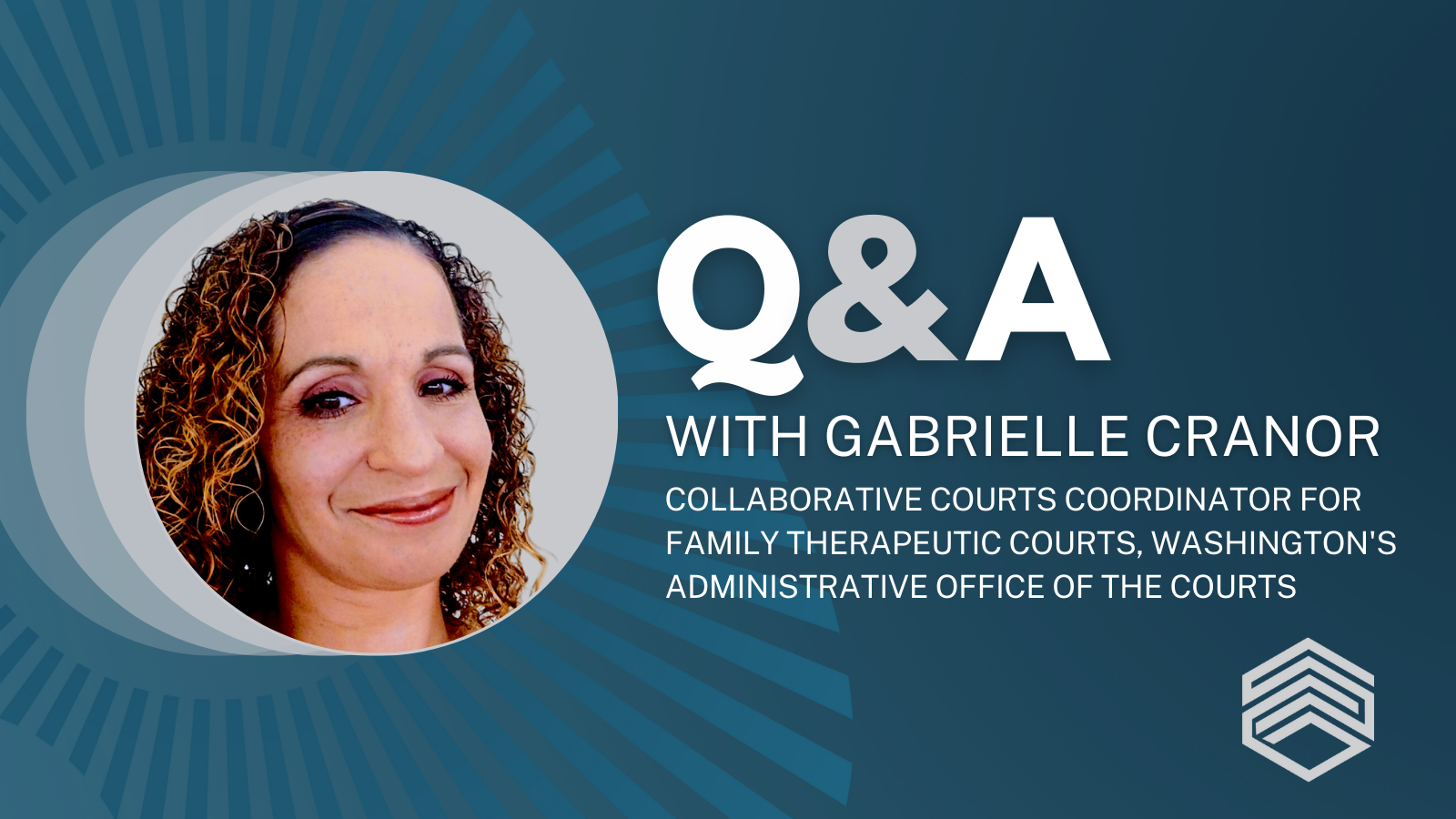Gabrielle Cranor recently started serving as the collaborative courts coordinator for family therapeutic courts in Washington’s Administrative Office of the Courts, a position that allows her to leverage her professional and personal experiences to effect positive change on a statewide level.
Congratulations on your new job with Washington’s Administrative Office of the Courts! What led you to your career path?
My journey to this position is a long story! Back in 2018, I was summoned for a dependency case in Mason County, Washington. I was in treatment for substance use disorder at the time, and my attorney suggested Family Recovery Court (FRC). The support I received and friendships I made through FRC were so important that I wanted to stay engaged with the team in some capacity. My attorney hired me to work in her office, fully believing in me and expecting I would grow. Shortly after, the FRC program manager invited me to join the FRC team as a caseworker. This led to my current role, where I can give back and make a difference on a larger scale across the state of Washington.
How will your personal and professional experiences inform your new role?
From my personal experiences, I really understand the struggles parents in recovery have, what they need to succeed, and the supports available to them. I don’t want anyone to experience the feelings of hopelessness and loneliness I endured. I was far from “court-friendly” and had to learn that everyone on the FRC team—attorneys, guardians ad litem, judicial officers, program and case managers—wanted me to succeed. I never expected so much encouragement. As a caseworker, I shared this new way of thinking with the people I supported.
When dealing with issues as important as your children’s future, you need to know what’s going on at every stage of the process. Having experienced the process myself, I made sure that none of my clients were going through it unprepared. I helped them see that the hard work of FRC participation can bring about miracles: I regained custody of my children and started a new career!
In my new position, I can apply both my personal and professional experiences to making system change, ensuring that collaborative courts have the training and technical assistance they need to not only operate according to best practices, but also meet individuals’ needs in a trauma-informed way.
Mason County, where you served as an FRC caseworker, is largely rural. What unique challenges do individuals with substance use disorders who live in rural areas face, and how does FRC help?
Access to services is a significant challenge in rural areas. For example, ridesharing may be available and the cost of getting to an appointment may be covered by Medicare or Medicaid, but other problems come up. For example, drivers often ask for up to 7 days’ notice, but when the call-in line says you need to complete a urinalysis that day, you can’t give that kind of notice. We’ve established a work group on transportation issues.
Another challenge, particularly significant for family reunification, is housing, which is not plentiful in rural areas. FRC can help fill in the gaps with rental assistance and other support.
Rural communities are also unique in terms of personal connections. Often, judicial officers know the people who appear in FRC, are happy to see them working toward recovery, and recognize how far they’ve come.
As a presenter at a recent conference, you shared, “I consider myself a super lucky person living a life that has been given to me as a learning experience and a true blessing.” What lessons do you want to share with others?
I tell people, “When you’re at that point of the race where you feel like you can’t run anymore, that’s the time to sprint.” By this, I mean that you need to dig deep within yourself to make it happen, to draw on whatever it takes to power through. Changing your life isn’t easy.
Appreciate all that you have, no matter how little it may seem. Even at my lowest point, I remembered that I had two hands, two feet, a mouth that could share my thoughts, and a brain that could understand. I had tools for making change and advocating for myself.
I also learned about the power of peer support. Talking with people who know first-hand what you’re going through is such a blessing. By bravely and honestly sharing their stories, strategies, and successes, they fill in the piece often missing from the recovery effort. They are the ones handing you water during that sprint.
Like what you’ve read? Sign up to receive the monthly GAINS eNews!


